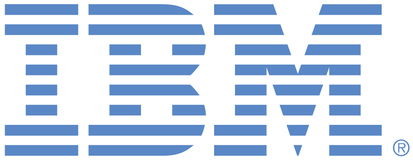
This is an IBM Automation portal for Integration products. To view all of your ideas submitted to IBM, create and manage groups of Ideas, or create an idea explicitly set to be either visible by all (public) or visible only to you and IBM (private), use the IBM Unified Ideas Portal (https://ideas.ibm.com).
Shape the future of IBM!
We invite you to shape the future of IBM, including product roadmaps, by submitting ideas that matter to you the most. Here's how it works:
Search existing ideas
Start by searching and reviewing ideas and requests to enhance a product or service. Take a look at ideas others have posted, and add a comment, vote, or subscribe to updates on them if they matter to you. If you can't find what you are looking for,
Post your ideas
Post an idea.
Get feedback from the IBM team and other customers to refine your idea.
Follow the idea through the IBM Ideas process.
Specific links you will want to bookmark for future use
Welcome to the IBM Ideas Portal (https://www.ibm.com/ideas) - Use this site to find out additional information and details about the IBM Ideas process and statuses.
IBM Unified Ideas Portal (https://ideas.ibm.com) - Use this site to view all of your ideas, create new ideas for any IBM product, or search for ideas across all of IBM.
ideasibm@us.ibm.com - Use this email to suggest enhancements to the Ideas process or request help from IBM for submitting your Ideas.

The MQ Operator already supports JSON logging. You just need OpenShift Container Platform 4.8 for the version of OpenShift Logging which can handle JSON logs.
I have managed to get JSON log format working with OpenShift Container Platform 4.7 cluster logging. Look forward to the new MQ JSON logging in OpenShift Container Platform 4.8.
The MQ containers already output error logs on stderr, so we think that more information is needed on what exactly this request is looking for
Getting the full MQ error log on stderr. Currently, the container either outputs the JSON error log line, or, if basic formatting is requested (the default), just the log message line.
Getting the web server logs onto stderr. This is already possible by setting some environment variables, but configuration could perhaps be simplified
Changing the text-based format of the logs to conform with the format used by other Kubernetes components, so that the same parser can process all messages. We are unlikely to do this, as the Kubernetes format is:
Specific to Kubernetes in some ways, for example the inclusion of a source file name in the output
Uses declarative logging, rather than messages with inserts. MQ uses messages with inserts.
For (3) the advice would be that from OpenShift Container Platform 4.8 onwards, JSON logging is supported again, so enabling MQ JSON logging (using ".spec.logFormat: JSON") would give fully structured logs.